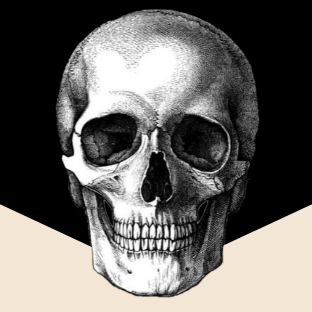PY: What inspired you to submit to Poor Yorick?
CS: A number of things attracted me to Poor Yorick: its mission “to remind us of pasts we cannot afford to forget;” that it is a joint effort between WCSU’s MFA program and history department; and that it has museum partners. Since my poem “Markd Y” is so infused with, infected by, the archive, finding a home for a section of the work in Poor Yorick seemed ideal.
That Poor Yorick wants to pair up creative work with the image/sound it grew out of also interested me. In my case, that item is a bill of lading where I first found evidence of an unnamed woman’s existence, she being included as cargo, not passenger.
PY: “Markd Y,” as a whole is a larger manuscript working with archival sources. Can you tell us about the bill of lading image that you drew from for the section published here in Poor Yorick?
CS: I am grateful to the Maine Historical Society for granting permission to share the image with Poor Yorick’s readers, since to examine it is to experience an actual piece of the machinery of the Atlantic slave trade. Most folks don’t have an opportunity to view a primary source with all of its idiosyncrasies of spelling, wording, penmanship, illustration, and wear and tear that can make the past more real. What people usually see of such documents are the ideas a writer has extracted from them to make his or her point in a textbook. So what ends up on the page is translation: often cleaned-up and re-packaged to the point of being antiseptic.
To take in the actual bill of lading and really read it is to view something more septic, something both holy and horrifying. On the one hand, it’s a paper grave, being one of only three places where I have so far found traces of the unnamed woman’s existence. On the other, it is a horror of wording bent on turning a woman into a thing. As it passed from agent Benjamin Bullard, to ship captain John Morris, to merchant William Pepperrell, whoever held that bill in 1719 had to work hard to keep his eyes on the page, to believe what he read. To look up and take in the sight of the flesh and blood figure before him would expose the lie in its words.
PY: Poor Yorick was inspired by the book, Fortune’s Bones, by Marilyn Nelson. The book brings to light the story of a man who was enslaved, used in afterlife to study anatomy through his bones, hung as a skeleton on display, forgotten for decades. What is it you hope to bring to light through your poem “Markd Y”?
CS: In my readings over the years on the horrors of the slave trade, historians mentioned people being branded as property from time to time. But it wasn’t until I stumbled over an actual document of the trade, where that scarring was brought down to one particular person, one particular situation, one particular “mark” and its location on the body, that the actuality of what branding a human being meant really hit me. What also struck hard was the realization that English, the language I had given my life to as a poet, was implicated in slavery right down to individual letters of its alphabet.
As I wrote my way towards a response to all of this, I found myself taking apart the language of the bill of lading and highlighting its components. I want readers to have to really think about how this machine was constructed, the violence in it. In some figurative way, the damage that could be done to the soul caught up in the language of the bill of lading seemed to parallel the damage that could be done to the body caught up in the cane grinding mechanisms of Barbadian sugar plantations.
So what I hope comes to light here is how much damage a mere shipping document can do in the “right” context, a document that would be completely benign if the “said goods” didn’t refer to a human being. It’s as if words had a mob mentality. Like certain people who might be great on their own, but, when someone they don’t like enters their midst, suddenly become sinister.
Please read Catherine Sasanov’s full interview.
Interview by:
Leslie Lindenauer
Poor Yorick Advisor
